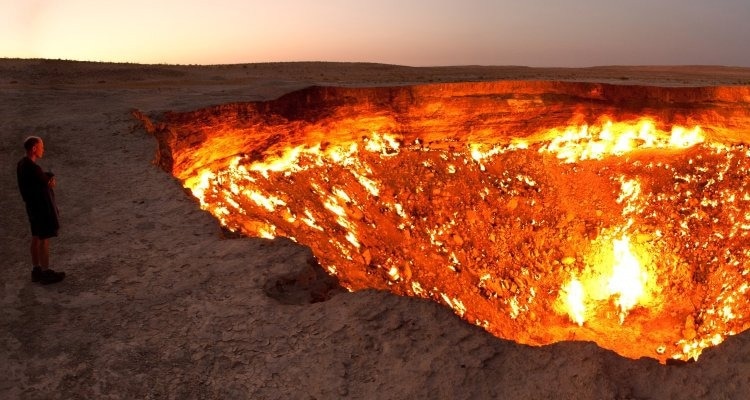Can rapid warming of the Earth cause tipping points in the climate? For decades, researchers have disputed the fact of whether today’s warming can strongly amplify itself by triggering a catastrophic release of greenhouse gases.

Image Credit: Tormod Sandtorv
A new study published in Science Advances provides evidence that such tipping events occurred in Earth’s history. The researchers demonstrate that tipping points drove three periods of intense warming millions of years ago.
Large underground carbon reservoirs exist on Earth, such as oil, gas, and coal deposits. Besides fossil fuels, there are various types of reservoirs in which carbon can be stored. Permafrost, or persistently frozen soils, preserves enormous amounts of carbon in Russia and Canada.
Moreover, millions of tons of methane are stored on the ocean floor in ice-like structures known as methane hydrates. This carbon will not contribute to climate change as long as it remains underground or frozen and does not enter the atmosphere as CO2 and methane.
Tipping Points
However, if global temperatures continue to rise, many climate scientists have warned that these reservoirs could become unstable, resulting in a tipping point: an abrupt release of massive volumes of greenhouse gases.
A catastrophic leak would, in turn, exacerbate climate change. For several years, scientists have argued the presence of hidden tipping points in the climate system. It has also been argued that the climate system is strong enough to prevent climate tipping points from being reached.
For the first time, research demonstrates that rapid global warming phases in the ancient past, between 56 and 52 million years ago, were actually caused by climate tipping points. Large volumes of CO2 and methane were already known to be emitted into the atmosphere during these phases, increasing warming.
This, in turn, destabilized other carbon reservoirs, causing more carbon to be released. Global temperatures rose even higher, allowing the chain reaction to continue.
Sturdiness
The study, conducted by mathematicians and earth scientists from Wageningen University & Research and Utrecht University, demonstrates that the climate system's sturdiness declined in the period preceding intense warming.
This is exactly what you would expect to see if release of carbon was caused by a carbon cycle tipping point.
Shruti Setty, Study First Author, PhD Candidate, and Mathematician, Wageningen University & Research
“Never before has there been such a strong indication of the amplifying effects of tipping points during these heat spikes, which are considered to represent the best analogs of modern climate change in Earth’s history,” notes Margot Cramwinckel, Assistant Professor in Earth Sciences at Utrecht University and Co-Author of the paper.
Irreversible
After crossing a tipping point, a new stable situation arises that is irreversible for a long time. From the perspective of a human life span, these changes can be described as permanent. This type of irreversibility is observable in smaller systems on scales we can understand. For example, in Darvaza in Turkmenistan, a crater was formed releasing a steady stream of toxic gases. This was a new stable state which we could not reverse. Despite countless efforts, the crater still exists and continues to burn unabated.
Shruti Setty, Study First Author, PhD Candidate, and Mathematician, Wageningen University & Research
Shruti Setty adds, “Perhaps the climate system today is very tough, and we never reach tipping points. However, we do not fully know the immensity of the risk. In the study, we present evidence for rapid climate change events induced by such tipping points in the distant past and this indicates that tipping points are part of Earth’s system.”
While the research revealed that tipping points exist in the climate system and can be activated as global temperatures rise, the scientists were unable to identify the carbon store that became unstable. Despite this, carbon reservoirs that most likely played a role in the extreme warming episodes remain key greenhouse gas reserves today. As a result, scientists warn that it is critical to determine how these unprecedented global warming events occurred.
Cramwinckel concludes, “Looking at the past is the only way to know how the Earth system is going to ultimately react.”